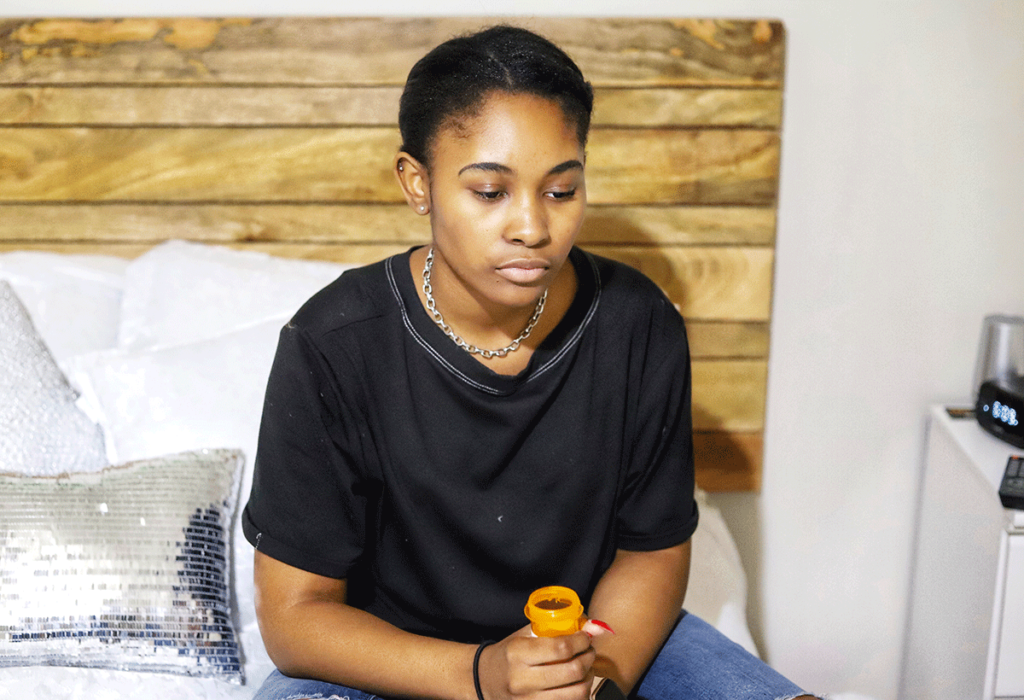With the opioid crisis expanding in the U.S., discussion about this epidemic has become ubiquitous. However, little discussion is happening that discusses the vital link between opiate abuse and depression. 43.8 million Americans experience mental health issues in a given year. That’s nearly one in five people. Depression affects 6.9% of adults in the U.S., making it second only to anxiety disorders.1 Statistics indicate more than half of all adults suffering from substance addiction also suffer from a mental health condition. Sadly, this means that often depression and opiates go hand-in-hand.
If you ask yourself, “Is there substance abuse treatment near me?” consider contacting The Arbor for depression and opiate-related addictions. We understand the strong connection between depression and opiates and provide specialized depression treatment services to our clients. Our compassionate counselors are committed to helping you find hope, healing, and recovery from depression in combination with opioid addiction. Call us today at 844.413.2690 to learn more about depression and opiate addiction treatment at The Arbor.
Does Opiate Use Lead to Depression, or Does Depression Lead to Opiate Use?
It can go either way. Suffering from either opioid addiction or a depressive disorder can increase the risk of the other. Opioid use is linked to higher rates of anxiety, depression, and bipolar disorders.2 Some research suggests that opiate use isn’t required to influence the risk of suffering from depression. The use may be enough to put someone at risk of mental health conditions. A study at St. Louis University found that 10% of over 100,000 patients prescribed opiates developed depression after using the medication, as prescribed, for more than a month. None had a prior diagnosis of depression.3
Depression and Pain
It is also true that pain often exists hand-in-hand with depression. Those suffering from chronic pain may develop depression, and the reverse is often true. As a result, many individuals suffering from physical pain often receive an opioid prescription to relieve them. More than half of all opioid medications are written for people suffering from depression, anxiety, and other mood disorders.
Studies have shown statistical evidence that people with mood disorders are at increased risk of addiction. Why this happens is not well understood. It is believed that opioids change the brain’s reward and pleasure receptors and hormones. There is evidence that people with depressive disorders experience lower levels of pain relief when prescribed opiates. This can lead to an increase in the amount and frequency at which opioids are taken.
Can You Use Opiates to Treat Depression?
Two recent clinical trials tested the use of opioids to treat depression.4 As it happens, before modern antidepressants were developed, it was common to treat depression with opiates. Unfortunately, many of those treated ended up with an addiction disorder. In one of the recent studies, an ultra-low dose of buprenorphine significantly reduced suicidal ideation after four weeks of treatment in 62 patients.
However, this reduction in suicide risk correlated only slightly with improvement in overall symptoms of depression. A second study that used higher doses of buprenorphine found that higher doses were significantly less effective.5 It would be risky to make assumptions based on such small and short-term studies. Given the high risk of addiction, using opiates to treat depression is a hazardous proposition.
Signs You Are Suffering from an Addiction to Opiates and Depression?
If you or a loved one is struggling with depression and opiates, there are several signs to look out for:
- Signs of depression (low energy, changes in appetite, difficulty sleeping)
- Withdrawal symptoms when opiates are unavailable
- Taking higher doses than prescribed
- Neglecting day-to-day activities
- Using opiates to cope with depression or anxiety
- Spending a large amount of time obtaining and using opioids
Depression and opiate addiction can be a tough cycle to break out of. The Arbor can help you get the treatment you need for depression and opiate addiction. The individualized program at The Arbor is designed to support people suffering from dual disorders. Our continuum of care includes multiple treatment and support programs. Your personalized treatment plan is designed to offer long-term support that meets your changing needs as you progress with sobriety and relief from depression. Talk to one of our counselors today.
Treating Addiction and Depression Concurrently Is Recommended
Given that both addiction and depression disorders can impact the pleasure receptors, the best chance for recovery from both illnesses is to treat them simultaneously. It’s well-documented that depression can cause addiction and that addiction can cause depression. Leaving one untreated doesn’t resolve the primary reason for the disorder. Failure to deal with both conditions concurrently leaves the patient at significant risk of relapse. Thus, treatment for both co-occurring disorders, also known as dual diagnoses, is important.
Dual Diagnosis Treatment
Individuals suffering from addiction and depression need dual diagnosis treatment for their co-occurring conditions. An adequately structured dual diagnosis treatment program includes supervising medical, psychiatric, and addiction professionals. Treatment may consist of counseling, medical support, medication, and peer support as part of an individualized treatment plan. Long-term follow-up and support are essential factors for success.
Contact The Arbor for Substance Use Treatment Options
If you struggle with depression and opiate addiction, The Arbor can help you. Our recovery specialists will work with your primary care provider to develop an individualized treatment program targeting depression and substance use. Our compassionate staff of professionals aims to help our clients achieve lasting sobriety and mental health wellness. If you want depression and opiate addiction treatment options, contact us at 844.413.2690.
References
1. National Alliance of Mental Illness – Mental Health by Numbers

